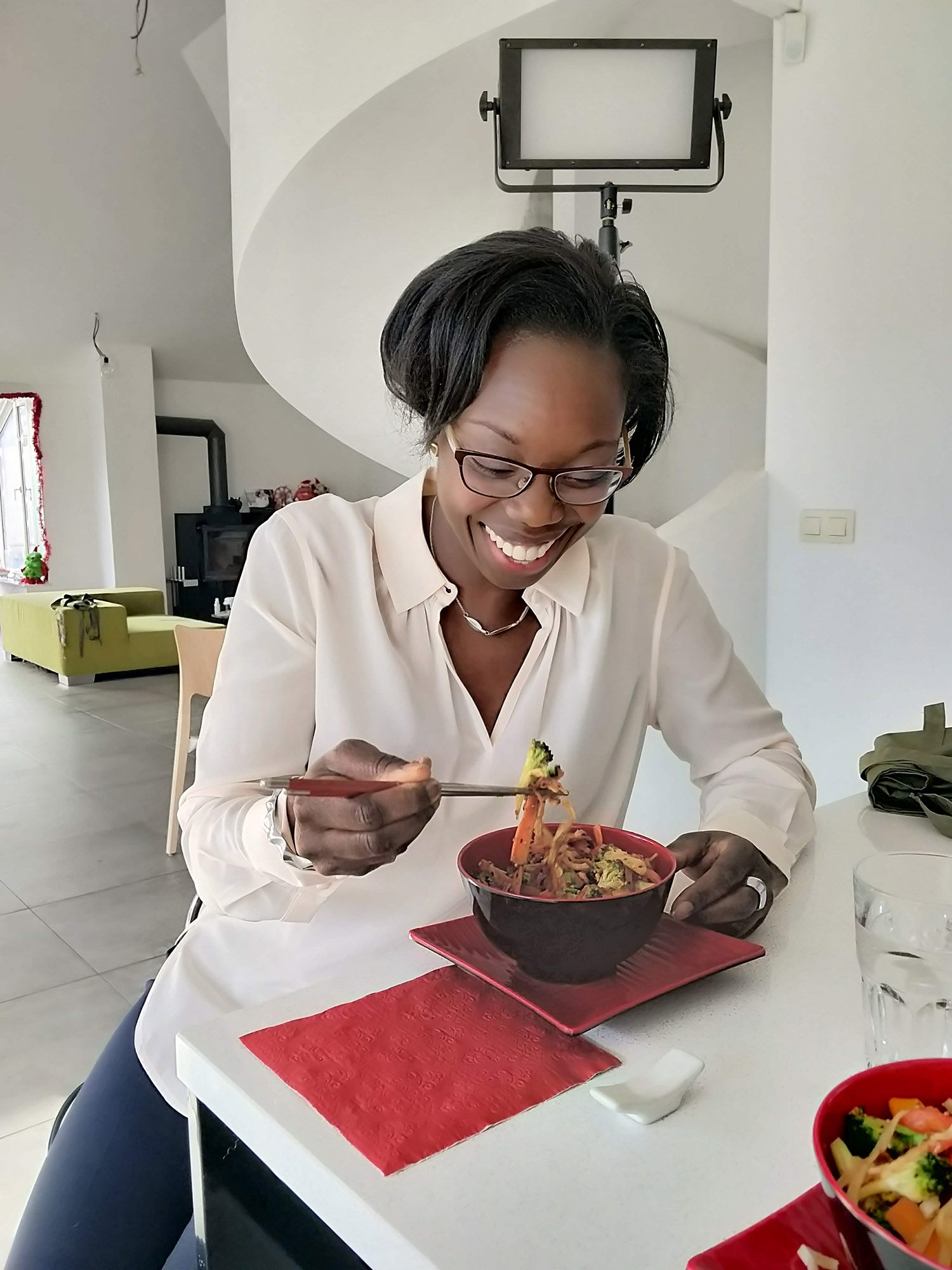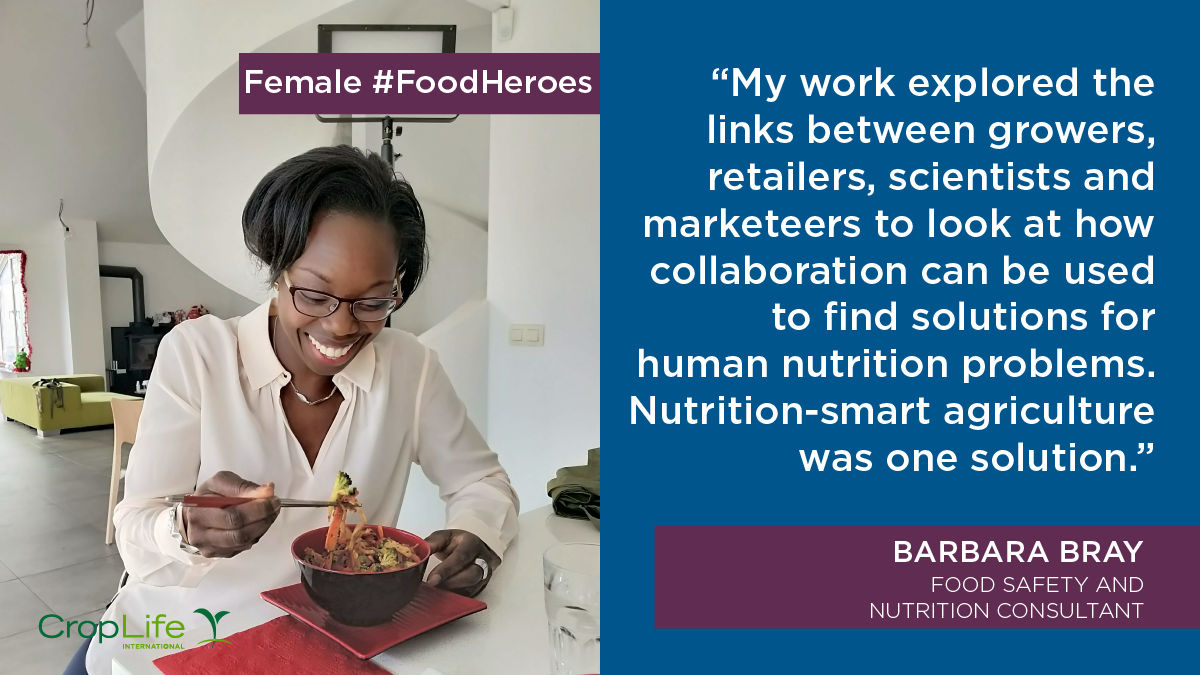
Barbara Bray
Barbara is a Food Safety and Nutrition consultant at her own company Alo Solutions Ltd in Manchester, UK.
What do you do?
I work with a range of fresh produce growers and food manufacturing companies to implement systems that keep them compliant with food safety standards. On the nutrition side, I work with manufacturers and food service companies to develop recipes and menus that are both tasty and nutritious. I have a range of roles in the voluntary sector, and I am currently a director of the Oxford Farming Conference, the UK’s leading conference on agri-food. I have additional committee roles for the Nutrition Society and the Institute of Food Science and Technology (IFST).
Why do you love your job?
It’s so varied and I get to help people solve all sorts of problems.
How did you get here?
I started life as a graduate food technologist before reading a Master’s in Postharvest Technology of Tropical crops at Cranfield University. On graduation, I went into the development sector to work on NGO funded projects for subsistence farmers in Uganda.
I decided that development work wasn’t for me and switched to working on a commercial farm. After that, I returned to the UK to join an international food manufacturer (Bakkavor) specializing in whole and prepared produce. From the graduate program, I spent time working in produce procurement and then moved to technical roles, finally spending time at three different businesses as a technical manager.
In 2014, I graduated with a Master’s in Human Nutrition and set up my consultancy business offering food safety and nutrition advice.
In 2017, I was awarded a Nuffield Farming Scholarship, a travel bursary to allow people in the agri-food sector to take time out of their day-to-day and carry out research.
What was your Nuffield Farming Scholarship on?
It took me years to apply for a Nuffield Farming Scholarship, thinking that it wasn’t for people in the food supply chain, and that I couldn’t afford the time. Fortunately, I was accepted onto the program and I benefited hugely from taking time out of my business to focus on my research, and on building relationships with new people; often from different industries and countries.
My project ‘vegetable production for specific nutritional need’ has become particularly topical as this year there has been increased focus on the importance of vegetables in our diet. They are a great source of nutrients, such as fiber and vitamins. I explored the links between growers, retailers, scientists and marketeers to look at how collaboration can be used to find solutions for human nutrition problems, and discussed nutrition-smart agriculture as a solution. It improves the nutritional quality of crops, but also enables the agri-food sector to be both productive and profitable.
My Nuffield Farming Scholarship was an amazing opportunity for me to see the importance of food and nutrition policy, which led to me speaking at a Committee for Food Security event at the UN, and at a global food security event at Queens University Belfast.
For anyone with a passion for food and farming, this scholarship opens doors, creates unique opportunities and arms you with the gravitas and credibility to lead real, positive change. I know – it’s worked for me.
What is your advice for young women wanting to contribute to sustainable food and farming?
Take the time to talk with people in your sector but also outside of it so that you can see your work in a wider context. This helps you learn from other industries and see the effects of decisions and policies on all the parts of the food system.
How does agriculture need to change to be fit for the future?
Agriculture needs to be flexible to the needs of young people who work in it. Expectations of the work environment are changing. Today people are looking for a good work/life balance, promotional opportunities, on-the-job training, and they place company values at a higher priority than salary expectations.
What’s one challenge you face as a woman in agriculture and what do you think needs to be done to overcome this?
In my experience it can be a challenge to go to people who don’t know you as they may doubt your competence. It’s important to have mentors to help guide you, sponsors to help place you in the right environment with the right skills, and advocates to tell other people about your work and how to help. This three-pronged approach is a good start.
You’ve also been involved in the Let’s Cook video series. Can you tell us about this?
I had the opportunity to appear in an episode of Let’s Cook with former MasterChef contestant Graeme Taylor, who is the Director of Public Affairs for the European Crop Protection Association.
The series hosted by ECPA, explores the big questions around food production and in this episode, we look at food safety and commonly held misperceptions about conventional farming. We also talk about nutrition and healthy lifestyle behaviors.
Communication with the public in a balanced way, showing the pros and cons of different food systems, is not so easy when there is so much conflicting information around, so it’s great to have a platform like Let’s Cook to dispel the myths.
Click here to watch the video on YouTube; Barbara’s recipe is available in the description. Click here to find out more about Let’s Cook and watch episode 1 featuring Will Evans.
Barbara is just one of many inspirational women working in agriculture. Visit our Female #FoodHeroes page to hear from other women working to improve plant science and nutrition.



